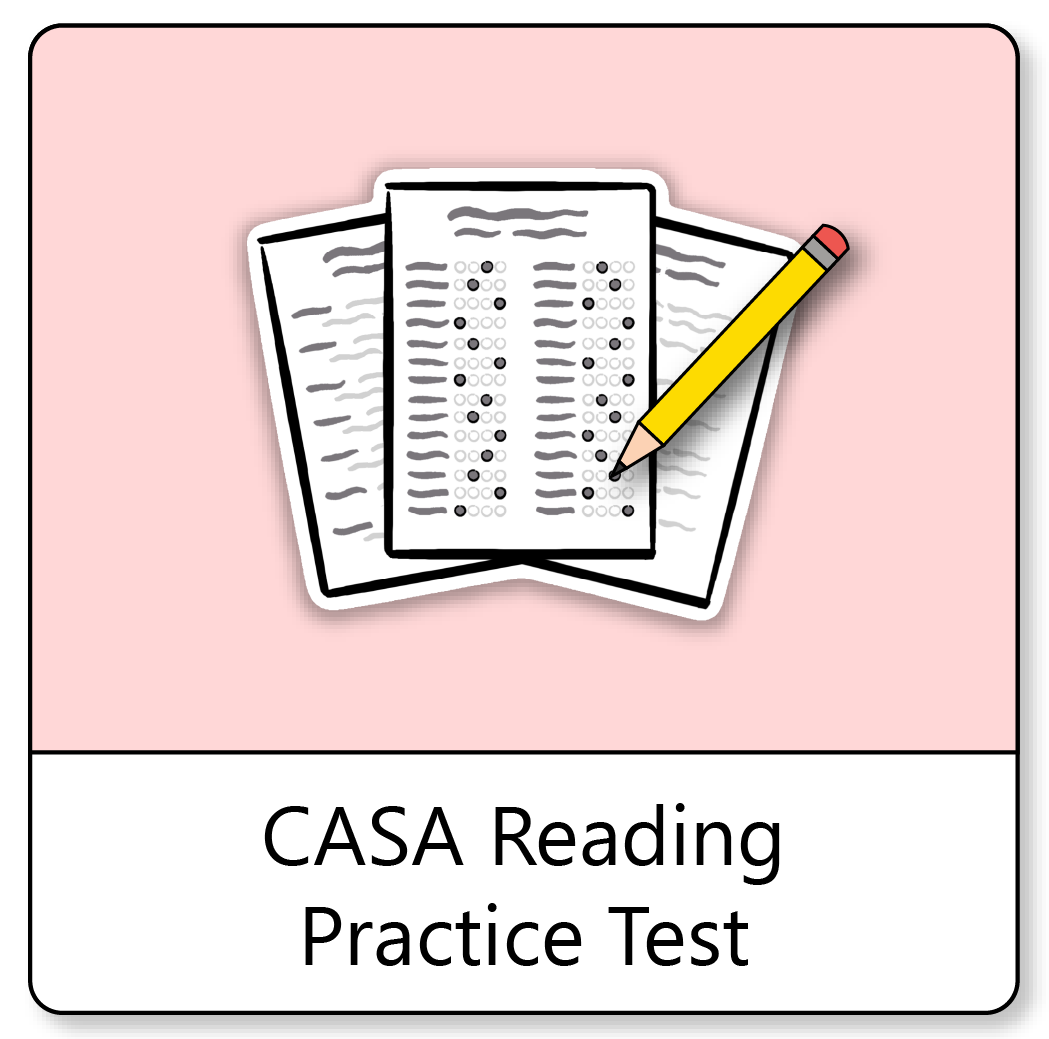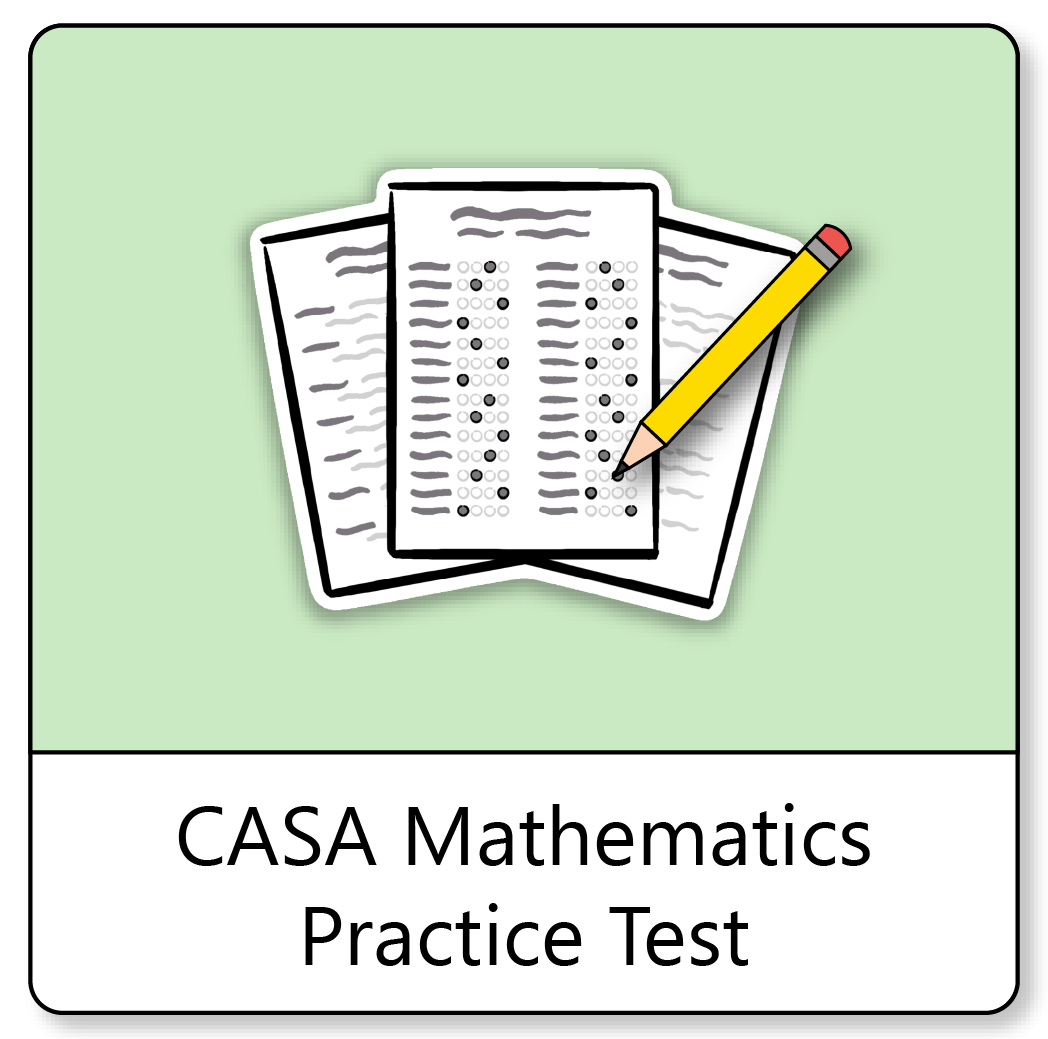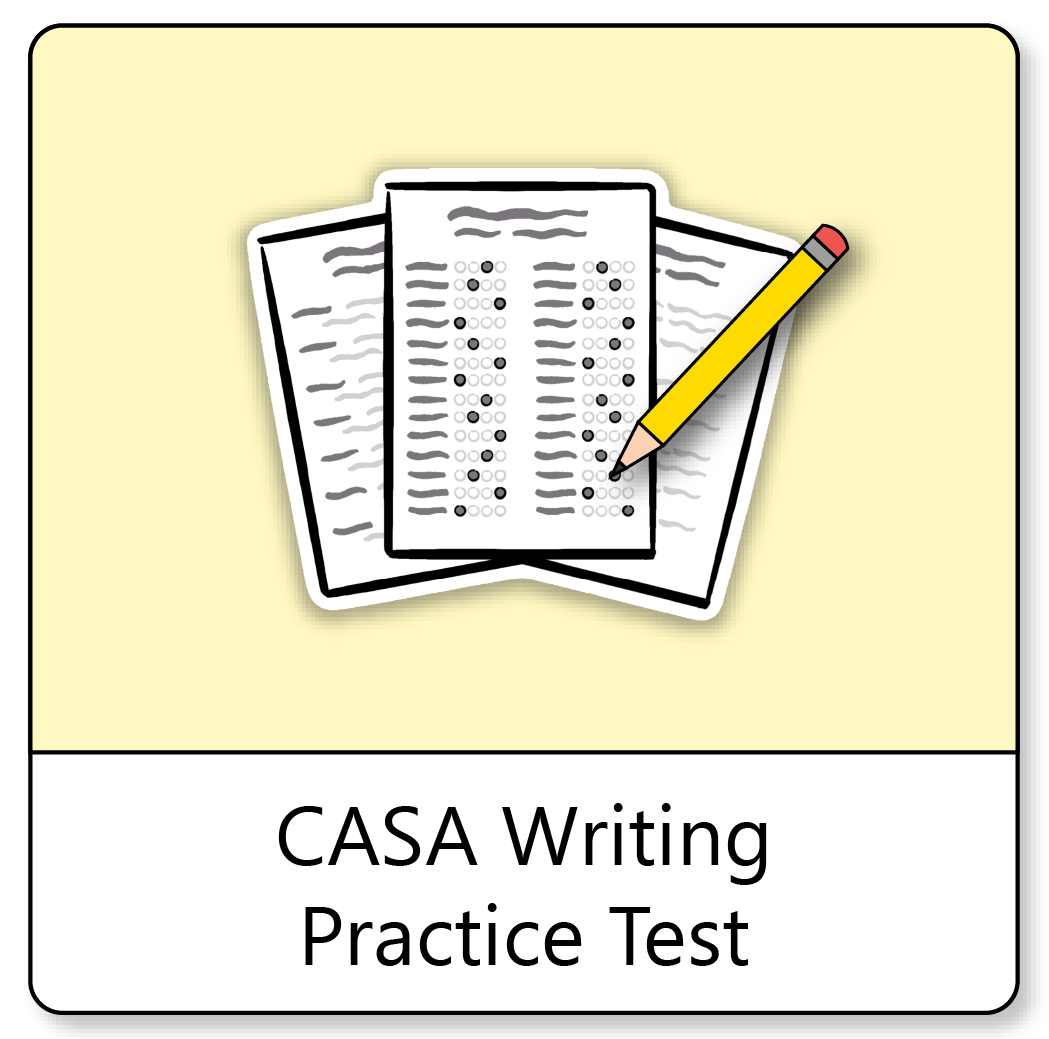If you need help studying for the Indiana CORE Core Academic Skills Assessment (CASA) or just want some more information about what the test is like, you’ve come to the right place.
Click below to take a free CASA practice test!
What’s on the Exam?
How to Register
Exam Scores
Retaking the Exam
Self-Assessment Modules
FAQs
Subject-Specific Practice Tests
If you need some extra practice for a specific CASA test, click one of the tests below to get started on a subject-specific CASA practice test.
What’s on the Exam?
First, let’s talk about the questions on the CASA exam. There are 123 questions in total, most being multiple-choice and one being constructed-response.
122 questions
Multiple-choice questions require you to select the correct answer from a list of four options. There will only be one correct answer per question.
Constructed-Response
1 question
The constructed-response question requires you to write your answer instead of selecting from a list of choices. Your response to this question is generally expected to be 400-600 words, and you’ll be given specific details and instructions before you take the test.
Each subtest is timed separately, but the total time limit for the exam is 4.5 hours. There aren’t any scheduled breaks within each subtest, but you’re free to take a restroom break if needed.
Let’s take a closer look at the different subtests.
Subtest 1: Reading
40 questions | 75 minutes
Literal and Inferential Reading (50%)
- Determining word meanings via word structure, context, and syntax
- Figurative language
- Denotative and connotative meanings
- Identifying central themes/ideas
- Analyzing a text’s structure
- Recognizing supporting and illustrative ideas
- Recognizing an effective summary or outline of the main idea
Critical and Evaluative Reading (50%)
- A writer’s stated or implied purpose
- A writer’s opinion
- Cause-and-effect relationships
- Drawing conclusions and making inferences
- Recognizing assumptions on which an argument depends
- Evaluating arguments and claims
- Analyzing how multiple texts address similar themes
- Credibility, objectivity, and bias
Subtest 2: Mathematics
40 questions | 90 minutes
Numbers and Algebra (60%)
- Ordering and computing rational numbers
- Representing rational and irrational numbers on a number line
- Estimating solutions to problems
- Common factors and multiples
- Ratio concepts
- Applying properties of arithmetic to algebraic expressions
- Solving equations and inequalities
- Evaluating algebraic expressions for a given value of a variable
- Linear equations and systems of equations
- Modeling and solving real-world problems
Geometry and Statistics (40%)
- Solving problems involving area, volume, and surface area
- Representing polygons on a coordinate plane
- Solving problems involving scale drawings
- Complementary, supplementary, adjacent, and vertical angles
- Similarity and congruence
- The Pythagorean theorem
- Interpreting data presented in various formats
- Interpreting measures of center in context
- Drawing inferences about populations based on random sampling
- Interpreting scatter plots and estimating lines of fit
- Fundamental properties of probability
- Determining probabilities using various representations
Subtest 3: Writing
43 questions | 105 minutes
Foundations of Effective Writing (60%)
- Recognizing writing that is effective for specific audiences and purposes
- Effective thesis statements, topic sentences, and supporting details
- Effective organization of paragraphs
- Organizing text to emphasize important words and ideas
- Organizing text to logically sequence ideas
- Effective transitions between ideas
- Editing text to effectively communicate ideas
- Editing text to eliminate unnecessary information
- Revising text to eliminate wordiness and redundancy
- Revising text to achieve precise and appropriate language
- Revising text to eliminate unnecessary shifts in point of view
- Standard English grammar and usage
Writing Assignment (40%)
- Analyzing claims
- Writing arguments to support claims and counterclaims
- Stating and maintaining focus on key ideas
- Organizing ideas effectively
- Maintaining a formal style and objective tone
- Providing a conclusion that supports the argument(s) presented
- Using clear and precise language and vocabulary
How to Register
To register for the test, you’ll need to create an account on the NES website. Once your account has been created, you can submit your application to take the test.
When you submit your registration, you will need to pay the $38 testing fee for each subtest. You can choose to take them all at once or separately. Either way, you’ll have to pass every subtest to pass the full exam.
Exam Scores
The test is scored using a scaled scoring method. Here’s how it works:
You will need a score of 220 on each subtests in order to pass the full exam.
The reason your raw score is converted to a scaled score is because everyone who takes the test is given a slightly different set of questions. Since everyone has a different arrangement of questions, and because some questions are harder than others, converting your raw score to a scaled score ensures a more even playing field.
Retaking the Exam
If you didn’t get a passing score on your first try, that’s okay! You can retake the test after a 30-day waiting period.
Keep in mind that you will have to pay the full testing fee(s) every time you retake the test.
FAQs
How many questions are on the Indiana CORE CASA exam?
The full exam contains 123 questions.
What is the time limit for the Indiana CORE CASA exam?
The full exam is timed at 4.5 hours.
What is the passing score for the Indiana CORE CASA exam?
You’ll need to get a final scaled score of at least 220 on each subtest to pass the full exam.
How much does the Indiana CORE CASA exam cost?
The testing fee is $38 per subtest.
Self-Assessment Modules
One of the most important parts of preparing for a test is determining which topics you need to brush up on as you study.
To get started with a self-assessment of your knowledge, click on one of the modules below!



 CASA Study Guide
CASA Study Guide CASA Flashcards
CASA Flashcards


